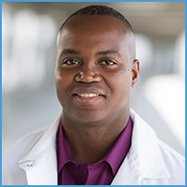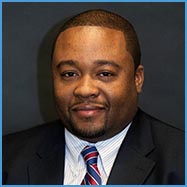

The Biology of Cancer Lecture Series:
A Collaboration between UNC, NC A&T, and NCCU
by Mary E. King and Julie Trollinger
The UNC Lineberger Cancer Network, in collaboration with North Carolina Central University and North Carolina Agricultural & Technical State University, was honored to participate in a new lecture series this fall titled The Biology of Cancer, a multi-organizational effort that included the following contributors:
- Dr. Buddy Weissman — Professor of Pathology & Lab Medicine, Pediatrics. University of North Carolina, Chapel Hill
- Barb Martin — Assistant Director, Community Outreach and Engagement, and Population Sciences. University of North Carolina, Chapel Hill
- Dr. Checo Rorie — Associate Professor of Genetics/Interim Chair in the Department of Biology, North Carolina Agricultural, and Technical State University
- Dr. Antonio Baines — Associate Professor, Dept. of Biological & Biomedical Sciences, Cancer Research Program, JLC-Biomedical/Biotechnology Research Institute, North Carolina Central University
- Veronica Carlisle — Community Outreach Coordinator. University of North Carolina, Chapel Hill
- Tim Poe — Director of Telehealth, UNC Cancer Network. University of North Carolina, Chapel Hill
- Dr. Jon Powell — Continuing Education Specialist. University of North Carolina, Chapel Hill
- Dr. Bill Wood — Associate Professor, Medicine-Oncology. University of North Carolina, Chapel Hill
- Dr. Anissa Vines — Assistant Professor, Epidemiology. University of North Carolina, Chapel Hill
- Dr. Jen Jen Yeh — Professor and Vice-Chair of Research. University of North Carolina, Chapel Hill
- Julie Trollinger — Administrative Support Associate. University of North Carolina, Chapel Hill
- Dr. Seronda Robinson — Department Chair of Public Health Education, North Carolina Central University
- Dr. Yolanda VanRiel — Interim Department Chair of Nursing, North Carolina Central University
- Dr. Ping-An Li — Department Chair of Pharmaceutical Sciences, North Carolina Central University
- Dr. Veronica Nwosu — Professor and Interim Department Chair of Biology, North Carolina Central University
The Biology of Cancer is a semester-long cancer webinar series investigating the role of race, class, and socioeconomics in the underserved and the underrepresented, Fridays 11:00 am – 1:30 pm. These lectures are taught by cancer biologists, physicians, public health experts, and other cancer specialists from North Carolina Central University, North Carolina Agricultural and Technical State University, and UNC-Chapel Hill, which began on August 28, 2020, with the last lecture ending on November 20, 2020. The series plan is to resume in the fall of 2021. Details may be found at www.thebiologyofcancer.org
I had the good fortune to speak with two of the main contributors to this project, Dr. Checo J. Rorie and Dr. Antonio T. Baines.
Dr. Baines, why do people of color seem to develop and die from cancer at rates much higher than most of the population?
I am asked this all the time; a great question but tough question. It is believed there are two major players when it comes to cancer: Genetics and the Environment. Genetics, which comes from your parents, you cannot control. Prostate cancer and breast cancer are examples of cancers where genetics and genetic susceptibility have been shown to be involved with development and progression. Environment—what you wear, smell, eat, and drink—is some of what we can control. It is believed that the environment plays a stronger role than genetics. Studies have shown that many people of color live in communities where there are high amounts of air and water pollution in the environment (environmental racism). Such toxic environments can play a significant role in dictating our overall health now and in the future. The combination of both genetic susceptibility and the environment can promote unfavorable conditions in the cell that can lead to cancer. If cancer is detected early, one has a greater chance of survival. However, many minority and poor communities do not have access to healthcare or a cancer center, which makes them more susceptible to diseases such as cancer.
Are risk factors controllable? If so, what is controllable, and what is not?
Some cancers seem to hit minority groups the hardest. For example, we see the aggressiveness of prostate cancer in African American men and breast cancer in African American women. Some cancers run in families due to genetic risk factors (ex. BRCA2 mutations), get passed down from generations, and careful surveillance is needed for those family members. Sometimes tough decisions need to be made as it relates to treatment. An example would be breast removal due to the increased risk of breast cancer. Exposure to chemicals, such as bisphenol A that is found in many plastics, is a risk factor we can try to control. Other risk factors that fall under lifestyle behaviors and can be modified include cigarette smoke and obesity. However, if you are impoverished, one cannot afford to live in better socioeconomic environments and access healthy foods. It breaks my heart when I realize how one’s zip code matters.
Does health literacy play a role in all of this?
Absolutely, yes. Unfortunately, your level of education matters too in order to be able to understand the basics of healthcare. Cell phones help as a resource as one can look online for unrecognizable terms discussed. More diversity in healthcare and healthcare professionals would greatly help, especially if you come from a similar background as the patient. Health care workers should always try to meet the patient where they are in understanding and help them to make informed decisions.
Dr. Rorie, why did you decide to participate in this series?
I was excited to be involved in a unique course dedicated to engaging undergraduates and the public who have very little experience or exposure to cancer research and cancer-related healthcare careers. This opportunity also gave me a chance to work with my PhD advisor, Buddy Weissman, and a long-time friend and colleague, Tony Baines, to develop a course and to provide an experience that would be different from the typical seminar series.
What are health disparities?
Health disparities are created when a particular segment of the population has either higher cases of a disease or higher death rates from the disease than expected when compared to other segments of a population that is usually based on race, ethnicity, or socioeconomic status.
What are some of the challenges to addressing health care disparities?
Some of the major challenges to addressing health care disparities are unequal access to healthcare that is usually related to systemic racism or barriers related to costs that can price-out those populations struggling socioeconomically due to low wages or inadequate health insurance.
How big of a role do social, environmental, and economic disadvantages play in health disparities?
All of these disadvantages create an uneven playing field when it comes to health outcomes leading to disparities. Accessing quality healthcare plays a significant role in perpetuating disparities. Healthcare, in theory, is an altruistic field, but human nature and society can influence how and if the needs of all people in a community are met.
When looking for an oncologist/physician, are there any essential questions minority patients should ask?
I think this is a tough question because patients are taught to trust their physician’s advice. My advice would be for the patient to become their biggest advocate and seek a second opinion before making major decisions related to their care. I would want to make sure that the physician is aware of all the options for my care, including clinical trials and new therapies.
How can we improve access to care for people of color?
One way to improve access to care is to ensure that all citizens receive quality health insurance so that they can access quality healthcare. It is important to train physicians and doctors who will go back into their communities so that their patients can have trust and comfort in what is being prescribed.
Are you aware of any critical initiatives going on right now to address this issue?
Recently, the American Association for Cancer Research released a disparities progress report that describes the current state of affairs related to cancer health disparities and how minority and vulnerable communities are affected disproportionately by cancer. These types of reviews should be done on a regular basis to truly gauge what efforts need to be made to improve cancer outcomes for all citizens.
Why do health disparities matter?
Health disparities matter because, if we can address those disparities, we will also reduce the overall incidence and mortality rates related to a disease such as cancer. Not only can we improve the lives of all citizens, but we can also help to reduce some of the societal burdens related to healthcare costs and improve health outcomes. Access to quality healthcare should be treated as a right and not a privilege to improve society as a whole.
Dr. Rorie and Dr. Baines, is there anything else either of you would like to share with our readers?
Dr. Rorie
I would invite the reader to watch the videos in The Biology of Cancer library at http://www.thebiologyofcancer.org/library to become better informed on all aspects of cancer research and care and to become involved to help improve cancer outcomes for all citizens.
Dr. Baines
Be your best advocate and your best cheerleader when it comes to your healthcare. As the best advocate, you know yourself better than anyone else. You know you, and you have to fight for you. Unfortunately, not all healthcare professionals will fight for you. As your own cheerleader, you need to be the one to cheer and encourage yourself. Look out for yourself, do what you need to do, and get support. There are folks out there who will provide support. You just have to find them. You cannot check out when it comes to your healthcare. Cancer does not mean a death sentence, as Stage 1 and 2 are easier to treat. Do not be afraid to ask questions!
We want to close with a quote from one of the key collaborators on this project, Dr. Bernard E. Weissman:
“The Biology of Cancer course has been a great success. It was a great team effort among local universities to develop this course and provide students a unique perspective about how health disparities affect cancer research and patient care. I hope that some of the students will now choose to pursue careers in cancer-related fields.”